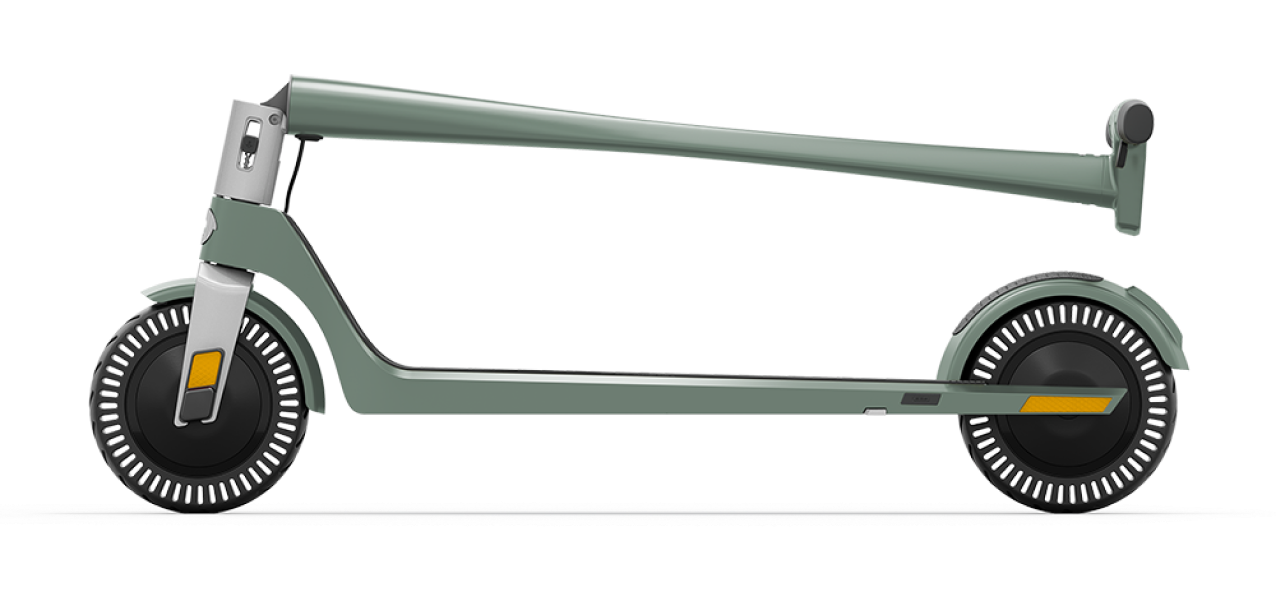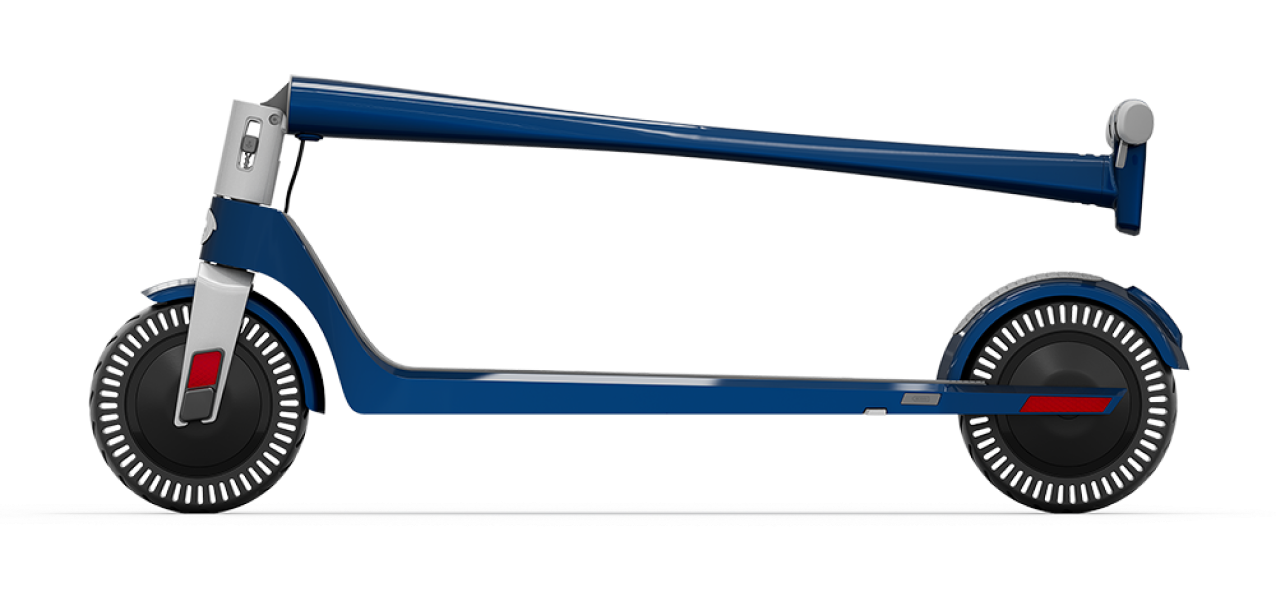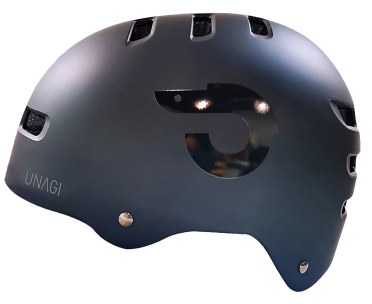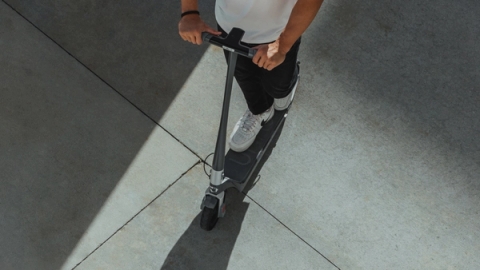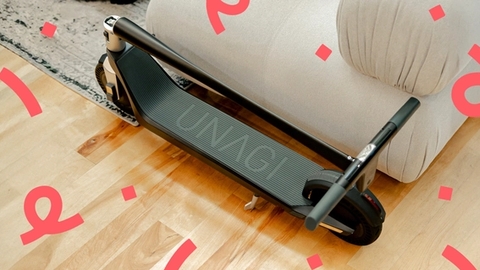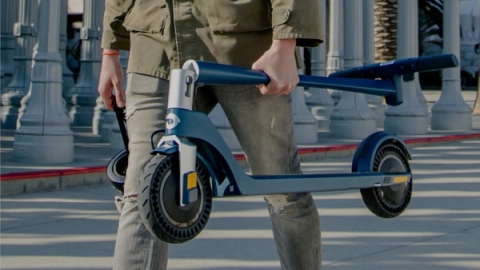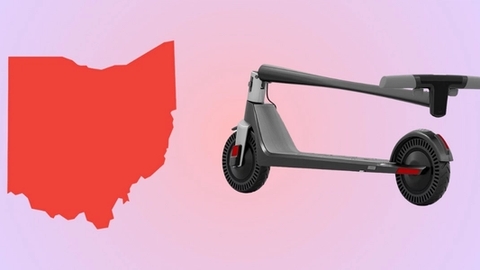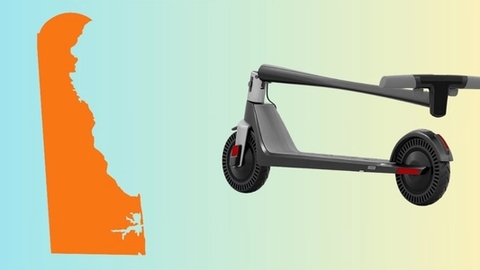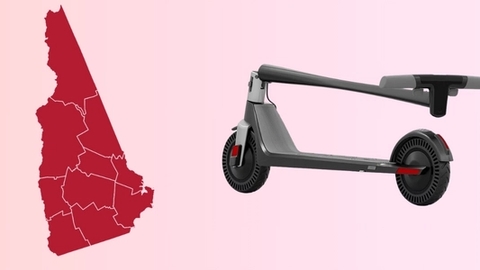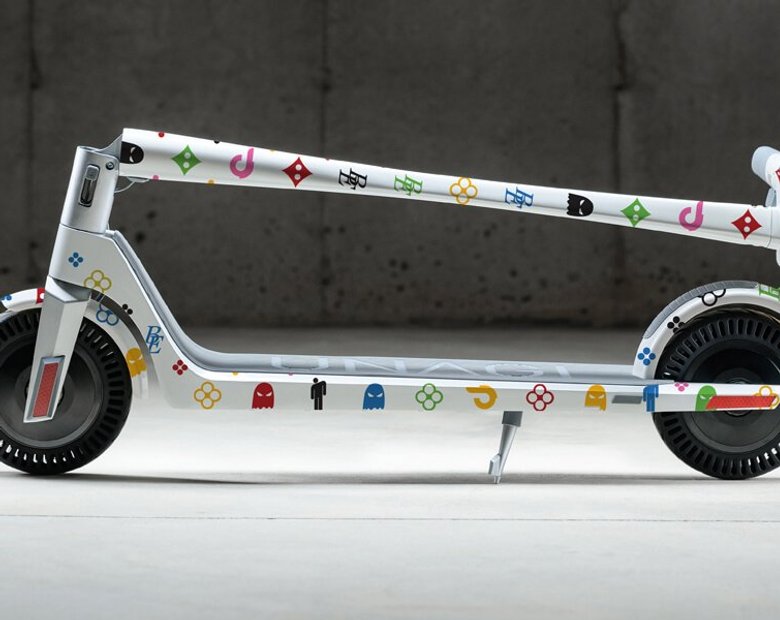Micromobility is here to stay, and it’s changing how we experience urban life for the better. With Unagi’s membership program, you can enjoy all the benefits of a top-tier electric scooter without the sky-high price of ownership or the inconvenience of ride-sharing.
The surge in popularity of electric scooters has led to the emergence of numerous manufacturers, some of whom prioritize cost-cutting measures over product safety. This trend has resulted in the infiltration of substandard electric scooters into the market, which may pose significant risks to consumers.
These scooters are often poorly constructed, lack critical safety features, and are susceptible to dangerous malfunctions, including mechanical failures and battery fires.
In light of these risks and spurred by numerous incidents involving these defective devices, regulatory bodies worldwide have taken action to protect consumers. They now mandate rigorous safety evaluations and certifications to ensure that electric scooters meet stringent safety standards.
This article will delve into the essential certifications that electric scooters must obtain across different regions, shedding light on what each certification covers and why they are crucial for both manufacturers and riders.
Global Enforcement of Electric Scooter Certification
In the U.S., the Consumer Product Safety Commission (CPSC) is leading the charge, requiring manufacturers, retailers, importers, and distributors of micromobility devices to comply with established UL safety standards, such as UL 2272.
Following suit, the New York City Council passed legislation requiring all electric bikes, scooters, and other micromobility devices to be certified by UL or another nationally recognized testing laboratory. This move has already taken effect, with many apartment buildings in New York now requiring their tenants to store only UL-certified scooters, like the UNAGI Model One Voyager which is one of the lightest electric scooter. The penalties for ignoring these rules are as hefty as the scooter's price - up to $1,000 for each violation. New Jersey has also proposed a similar bill, and this trend seems likely to spread to other states.
But it's not just the U.S. that's cracking down. International regulators are also recognizing the importance of certification. In Singapore, for example, the Land Transit Authority (LTA) requires all personal mobility devices (PMDs) and e-scooters to conform to the UL 2272 Standard.
Importance of Electric Scooter Certification
Here are some key reasons why certification is important:
Ensures safety standards
Certifications, especially from reputable organizations, mean that a product has undergone rigorous testing for safety. These tests evaluate the scooter's electrical, mechanical, and structural components, as well as its overall design and performance. This is particularly vital for electric scooters, which can pose significant risks (like battery fires or electrical failures) if not properly designed and tested.
Builds consumer trust
Certification marks on electric scooters serve as the first visual indicator of quality, safety, and compliance. This can build trust and confidence in the product, making consumers more likely to purchase it.
Facilitates compliance with regulations
Certain certifications may be required by law for electric scooters to be legally sold and used in a given region, as in the case of CE certificates for EU nations.
Enhances product quality and reliability
The process of obtaining certification often requires manufacturers to meet high standards of quality to ensure the electric scooters are built to withstand the rigors of daily use. This process helps to weed out products that could malfunction or degrade prematurely and, in turn, can drive improvements in the overall product design and manufacturing processes.
Supports market access and expansion
International certification can serve as a passport for electric scooters to enter and compete in international markets. Many countries do not allow the sale of certain electronic products unless they carry specific certifications. By acquiring these certifications, manufacturers gain easier access to global markets, expanding their potential customer base.
Reduces liability
For manufacturers, having certified products can reduce liability in the case of accidents or failures. If a product meets the recognized safety standards, it's less likely that the manufacturer will be held responsible for safety-related issues, provided they have adhered to these standards.
Environmental protection
Some certifications, such as ROHS, also focus on environmental aspects, ensuring that products comply with regulations concerning environmental protection. This can include the use of non-toxic materials, adherence to methods that reduce environmental degradation, and promoting sustainability in product design and disposal.
Comprehensive overview of electric scooter certifications
Here are some of the important certifications that your electric scooter might need to have, depending on the region:
America's certification
We will start with one of the most prominent certifications:
UL certification
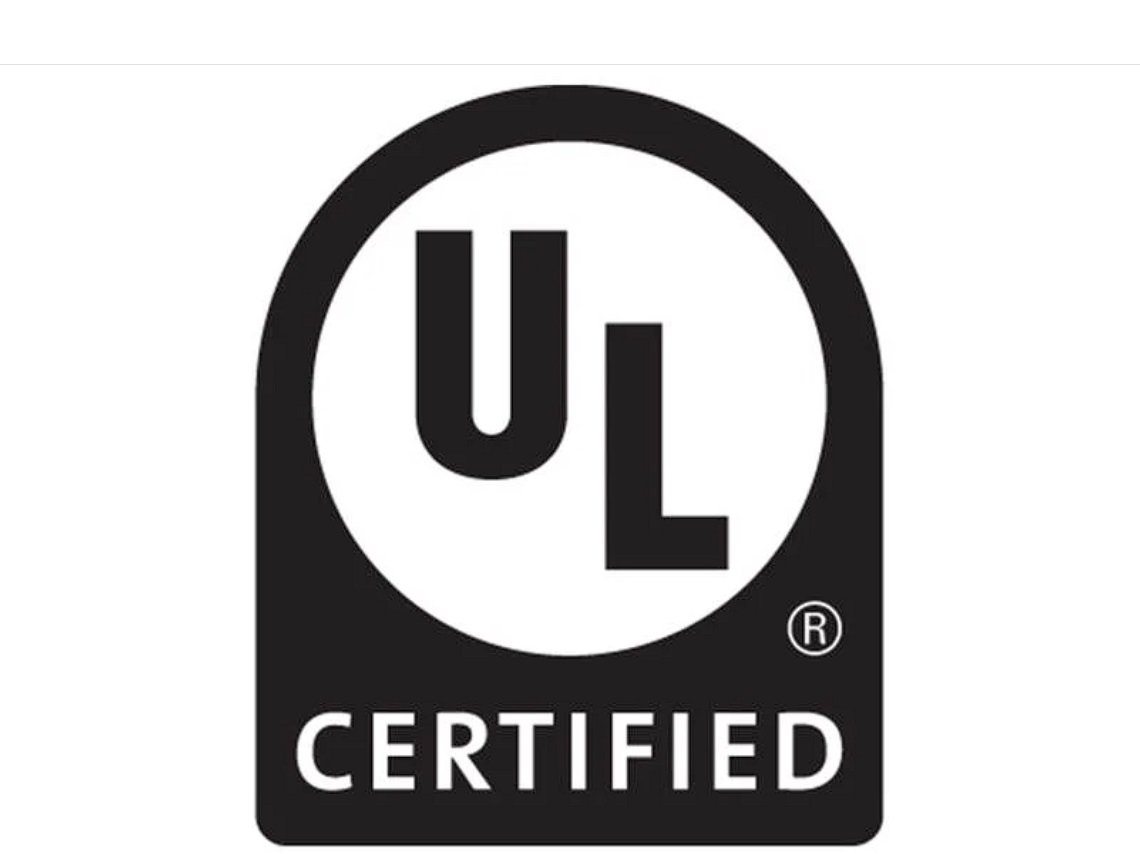
UL Solutions (Underwriters Laboratories) is a globally recognized safety certification organization that has been developing standards, testing and certifying products, including electric scooters, for over a century now.
For electric scooters, UL certification involves testing of the electrical and mechanical components (wiring, installation, etc.), battery, charger system combinations, and overall construction quality to ensure compliance with industry standards.
However, it's important to note that UL doesn't always directly test every product that bears its certification mark. In many cases, they authorize manufacturers to test their products according to UL standards and guidelines. Once a manufacturer demonstrates compliance with these requirements, they are permitted to apply the UL certification mark to their products. UL then conducts regular follow-up inspections and audits to ensure that manufacturers continue to test their products and adhere to the established guidelines.
Electric scooters in the USA and Canada (North America) usually need to have this certification, though it's not limited to these countries, as in the case of Singapore's adaptation of the certification.
Some of the UL-developed specific standards for electric scooters are:
UL2272 certification: Standard for the safety of electrical systems for personal e-mobility devices
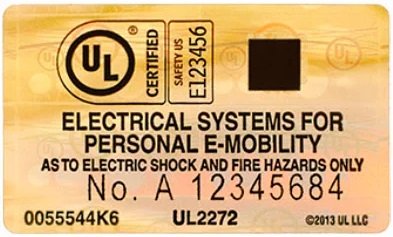
The standard was specifically formulated in response to the surge of fire incidents associated with hoverboards in 2015-2016. The CSPC (U.S. Consumer Safety Product Commission) reported significant property damage due to these fires, prompting the need for stringent testing parameters. UL subsequently developed a testing standard for hoverboards, which was later expanded to include electric scooters and e-skateboards.
While individual components used in electric scooters (e.g., batteries) have undergone safety testing for years and may be individually safe, their performance and safety when integrated with other components within a device may differ from expectations. This is particularly true for electrical systems, where components must be carefully matched to ensure they work together safely under all anticipated conditions.
The ANSI/CAN/UL 2272 comprehensive system takes a blanket approach to evaluating the entire electrical system of an electric scooter rather than focusing on individual components. This approach helps to identify potential electrical and fire hazards that may not be apparent when testing components separately.
The ANSI/CAN/UL 2272 certification process includes a wide range of tests, such as:
Electrical tests
These tests assess the device's ability to withstand potential hazards under normal conditions and with a single fault in the protection circuitry.
- Overcharge test: Evaluates the device's ability to withstand overcharging without causing a safety issue while maintaining specified voltage limits.
- Short circuit: Assesses the scooter's resistance to short circuits and its ability to prevent fire or explosion in such situations.
- Overdischarge: Determines if the device can withstand over-discharging without posing a safety risk.
- Temperature test: Ensures that component cells operate within safe temperature, voltage, and current limits during extreme usage.
- Imbalance charging: Tests device stability when battery cells in series become unbalanced, preventing safety hazards.
- Dielectric voltage withstand: Examines electrical insulation and spacing to protect against hazardous voltages.
- Leakage current: Measures leakage current on accessible surfaces during charging (<0.5 milliamperes).
- Grounding continuity: Measures grounding circuit impedance (< 0.1 Ohm).
- Isolation resistance: Checks insulation effectiveness in isolating hazardous voltages from accessible parts.
Mechanical Testing:
- Vibration: Assesses if the electrical mobility devices can withstand vibrations without loosening connections or parts.
- Shock: Tests device resistance to mechanical shocks without causing battery damage.
- Crush: Evaluates devices' durability against crushing events without explosions or fires.
- Drop: Determines if dropping the device from about one meter onto concrete creates any hazards.
- Strain relief: Includes safety tests to ensure exposed non-detachable device cords withstand pulling and pushing.
- Handle loading: Tests handles to endure four times the device's weight for one minute without damage.
Environmental Testing:
- Water exposure: The devices are tested for resistance to splashing water (minimum IPX4) and partial immersion, simulating puddle exposure.
- Thermal cycling Checks the device's ability to withstand rapid temperature changes.
Material and Component Testing:
- Flame resistance: Enclosure materials must meet UL 746C and UL 94's V-1 flame rating.
- Motor safety: Includes an overload test to assess motor resilience under excessive current draw and a locked rotor test to ensure motor safety when the rotor cannot move.
UL2271 Certification: Lithium-ion Battery Safety
In addition to the overall electrical system, UL also has a specific certification for the lithium-ion batteries used in e-scooters. To earn this certification, battery packs must pass a series of tests designed to evaluate their safety and durability.
Tests include assessing the battery's response to external short-circuits, thermal runaway, overcharge, over-discharge, external shocks, and physical stress like crushing and impact. Additional evaluations involve water immersion, thermal cycling, vibration, and forced discharge. These tests help to verify the battery's resilience and ability to maintain its protective controls and functionality under a wide range of conditions. This means that the battery won't pose risks like catching fire, rupturing, leaking, or causing electrical shock hazards to consumers, and provides an extra layer of assurance that the battery is safe for use and will remain reliable throughout the scooter's lifespan.
UNAGI Scooters, recognized for their adherence to safety standards, proudly bear the UL certification mark(UL 2271 and UL 2272). This endorsement covers extensive safety testing of their batteries, charger system combinations,electrical drive train system, and overall construction, ensuring that each scooter not only meets but exceeds industry safety standards.
Federal Communications Commission (FCC) Certification
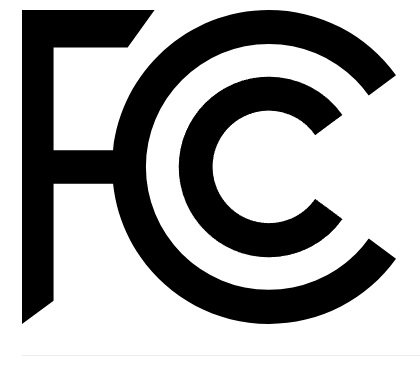
FCC certification is an important consideration for electric scooters that incorporate wireless technology, such as Bluetooth connectivity or GPS tracking. This certification ensures that the scooter's wireless components comply with electromagnetic interference regulations and do not cause harmful interference to other electronic devices.
IC certification
The Industry Canada (IC) certification, managed by Innovation, Science and Economic Development Canada (ISED), ensures that electronic equipment complies with Canada's established standards for electromagnetic compatibility (EMC), radio frequency (RF), and telecommunications requirements. This certification is mandatory for products that emit radio frequencies and are intended to be sold or operated within Canada. IC certification in Canada is somewhat analogous to FCC certification in the United States.
Department of Transportation (DOT) certification
DOT certification addresses the compliance of electric scooters with road safety standards, which include specifications for lighting, reflectors, tires, and braking systems. This certification is particularly important for states that classify electric scooters as motor vehicles. However, it's worth noting that in most states, there is no mandatory federal safety standard specifically targeting scooters, as they are not typically considered "motor vehicles" under the Federal Motor Vehicle Safety Standards (FMVSS) enforced by the National Highway Traffic Safety Administration (NHTSA). Instead, state statutes often define the safety requirements electric scooters must meet within their jurisdiction.
ETL Certification
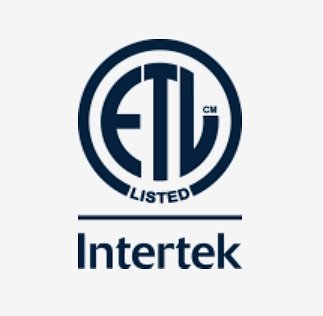
ETL certification, provided by Electrical Testing Laboratories (ETL), a division of Intertek, is a safety certification for electrical products in North America. With OSHA recognizing ETL as a Nationally Recognized Testing Laboratory (NRTL), products bearing the ETL mark have been independently tested and found to meet specific safety standards set by organizations such as ANSI, UL, CSA, or other recognized standards organizations.
The ETL certification mark is widely accepted in North America and is recognized as equivalent to UL and CSA marks by many authorities having jurisdiction (AHJs). It is also accepted in some other countries, particularly when combined with additional country-specific testing and certification.
CSA Certification
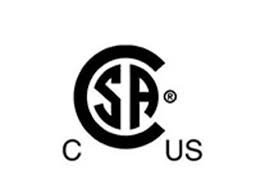
CSA Group, a non-profit organization, plays a role in developing standards and providing testing, inspection, and certification services for a wide range of products in Canada, similar to the role of UL in the United States. CSA certification is widely recognized in Canada and the United States as a certification mark of safety and quality and is often accepted as equivalent to UL certification.
CSA is a Nationally Recognized Testing Laboratory in the U.S. and is accredited by the Standards Council of Canada (SCC) and the American National Standards Institute (ANSI). It also maintains numerous global partnerships, including with the International Organization for Standardization (ISO) and the International Electrotechnical Commission (IEC), which help to align and harmonize standards across borders, further extending CSA's reach and influence in the global market.
International standards and certifications
Some certifications and standards recognized across different continents include:
IEC (CB Certification)
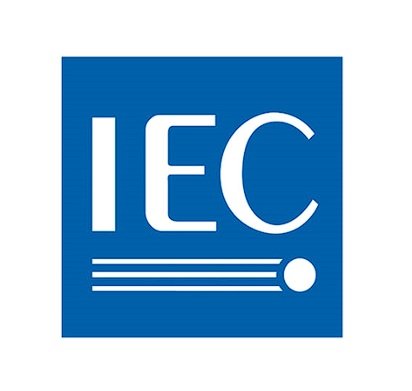
The International Electrotechnical Commission (IEC) is a global organization that develops and publishes international standards for electrical, electronic, and related technologies, including e mobility devices.
One of the most important services provided by the IEC is the CB Scheme, also known as the IEC System for Conformity Assessment Schemes for Electrotechnical Equipment and Components. This international program facilitates the mutual acceptance of test reports and certificates relating to the safety of electrical and electronic components between countries.
A Certified Body Testing Laboratory (CBTL) will test and certify a product, such as an electric scooter, in accordance with IEC standards before awarding it a CB Test Certificate. This certificate is recognized across all participating countries in the CB Scheme, allowing the product to enter these markets without the need for retesting, fostering smoother international trade.
The most relevant IEC standards for electric scooters are:
- IEC 60335-2: General requirements for the safety of household and similar electrical appliances
- IEC 63281-2-1 (awaiting publication): Safety requirements and test methods for personal e-Transporters
- IEC 62133: Safety requirements for portable sealed secondary cells and batteries containing alkaline or other non-acid electrolytes
IP Ratings
The IP rating, which stands for Ingress Protection or International Protection rating, is a widely recognized standard that indicates the level of protection provided by electrical enclosures against intrusion by solid objects, dust, accidental contact, and water. This rating system is defined by the international standard IEC 60529.
Each IP rating consists of two digits. The first digit indicates the level of protection that the enclosure provides against solid objects, including body parts like hands and fingers, as well as smaller objects such as dust and dirt. These ratings are on a scale from X (not tested) to 6K (completely dust-tight). The second digit represents the level of protection against liquids, scaled from X (not tested) to 9K (protection against high temperature, high-pressure water jets).
Read more about IP ratings and electric scooters in our blog Electric Scooters and IP Ratings- What You Need to Know.
European Certification
Several important European certifications apply to electric scooters:
CE Marking (Conformité Européenne)
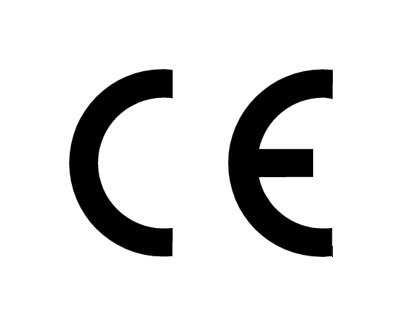
CE is a mandatory certification mark that indicates conformity with health, safety, and environmental protection standards for products sold within the European Economic Area (EEA). The CE marking is required for many products, including electric scooters, and signifies that the manufacturer has assessed the product and deemed it compliant with relevant European directives and regulations.
For electric scooters, the relevant directives and standards may include:
- Machinery Directive (2006/42/EC), the most recent version being the (EU) 2023/1230 -for overall product safety
- Electromagnetic Compatibility (EMC) Directive (2014/30/EU)
- Restriction of Hazardous Substances (RoHS) Directive (2011/65/EU)
- EN 50604-1 and EN 62133-2 for battery safety
- Low Voltage Directive (2014/35/EU)
- General Product Safety Directive (2001/95/EC)
- EN 17128 (Light motorized vehicles for the transportation of persons and goods and related facilities)
In total, over 30 countries require CE marking, including all 28 EU member states and some non-members.
RoHS (Restriction of Hazardous Substances)
RoHS is a directive that originated in the European Union and restricts the use of certain hazardous substances in electrical and electronic equipment (EEE). The substances restricted by the RoHS directive include lead (Pb), mercury (Hg), and cadmium (Cd), among others. The purpose of this regulation is to protect human health and the environment by restricting the use of substances that have the potential to cause harm when disposed of or recycled; by limiting the use of toxic materials in the manufacturing process.
Compliance with RoHS is mandatory for products sold in the European market and is increasingly being adopted worldwide. RoHS compliance is often indicated by a logo or marking on the product or its packaging and is a part of the broader CE marking process.
Asian Certifications
There are numerous certifications across major Asian markets. Here are some key examples:
CCC (China Compulsory Certification)
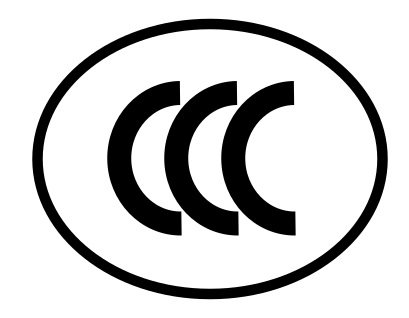
The CCC certification is mandatory for a wide range of products sold and used within China. Managed by the China National Certification and Accreditation Administration (CNCA) and other government authorities (SAMR, CCQC, CCAP), this certification ensures that products meet the safety and quality standards required by Chinese regulations. Products ranging from electric scooters to toys and vehicles must obtain this certification before entering the Chinese market.
KC (Korea Certification)
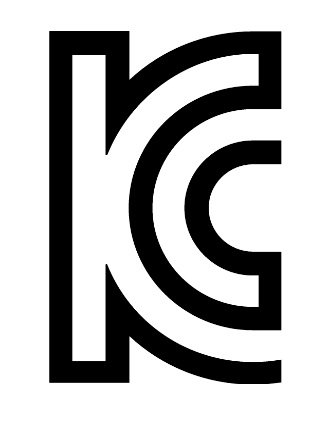
Managed by the Korean Agency for Technology and Standards (KATS), the KC mark is a compulsory safety mark for many products, including electrical and electronic devices, toys, textiles, and household goods. It ensures that the products comply with Korean safety standards.
PSE/PSC (Product Safety of Electrical Appliance and Material)
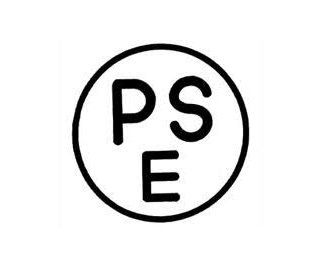
PSE certification is mandatory for electrical appliances and materials sold in Japan. It indicates compliance with the Japanese Electrical Appliance and Material Safety Law. This certification is managed by the Ministry of Economy, Trade and Industry (METI) and covers both safety and EMC (Electromagnetic Compatibility) testing. Other certifications you may also need include VCCI, which regulates electromagnetic interference (EMI) from equipment.
Battery Safety Certifications: UL2271, UN/DOT 38.3, and IEC 62133
Batteries are the powerhouse of e-scooters, but they are also the most vulnerable component in terms of safety risks. Therefore, rigorous certifications are crucial. Below are key certifications often required for e-scooter batteries.
UN38.3 Certification
UN38.3 is a transportation testing standard for lithium-ion batteries, developed by the United Nations Committee of Experts on the Transport of Dangerous Goods. This certification is required for shipping lithium-ion batteries by air, sea, or ground transport, and its primary purpose is to ensure the safety of these batteries during transportation, minimizing the risk of fire incidents, explosions, or other hazards.
The certification process for UN38.3 involves a series of tests designed to evaluate the battery's safety under conditions likely to occur during transportation. These tests include altitude simulation, forced discharge, vibration, shock, short circuit, impact, overcharge, and thermal cycling.
It is important to note that passenger airlines do not allow the transport of lithium-ion cells/batteries as cargo, meaning you cannot carry your electric scooter on a plane even if its battery is UN38.3 certified.
Since UN38.3 is recognized internationally, compliance with this standard is essential for global trade.
EN62133/IEC 62133
IEC 62133, also known as EN 62133 in its European harmonized version, is a critical safety standard for rechargeable lithium-ion and lithium polymer batteries. It encompasses the requirements for testing the reliability and safety of these types of batteries, which are used in portable devices and increasingly in larger applications like e-scooters and energy storage systems.
IEC 62133 applies to both nickel and lithium-ion technologies and includes tests specific to each type of battery technology, focusing on their unique responses to electrical, mechanical, and environmental stresses. The testing categories are as follows:
- Environmental testing: Evaluates battery performance under conditions such as extreme temperatures and humidity.
- Mechanical tests: These include crush, shock, and vibration tests to assess the mechanical integrity of the battery.
- Electrical tests: Covers overcharge, forced discharge, and short-circuit conditions to assess electrical safety.
- Abuse testing: Simulates conditions of misuse that could lead to battery failure or thermal runaway, such as improper handling or operational errors.
In Europe, compliance with EN 62133 is essential for achieving the CE marking.
MSDS (Material Safety Data Sheet)
A Material Safety Data Sheet (MSDS), also known as a Safety Data Sheet (SDS), provides essential information on the chemical composition, potential hazards, storage, and safe handling practices for electric scooter components, particularly the battery.
The MSDS for e-scooter batteries also includes identification details about the battery and its manufacturer, critical first-aid and emergency procedures for chemical exposure, procedures for extinguishing fires, steps to manage accidental leaks or spills, and disposal considerations, among other information.
UL2271
We have already discussed UL2271 in the UL certification section, highlighting its importance as one of the key safety standards for electric scooter batteries.
How can you identify a certified electric scooter?
Here are several ways to determine if a scooter has the necessary certifications:
- Certification labels: Look for tamper-proof hologram stickers or certification logos on the scooter's specification label.
- Check product specifications: Manufacturers often list the certifications their products have obtained in the technical specifications or product description on their website, product packaging, or user manual.
- Online listings: Certified e-scooters are listed on the testing organizations' product listing pages. Each organization maintains a searchable database of the products they have certified, which is accessible to the public. For example, UL has a searchable online database called UL Product iQ.
- Request certification documentation: If the certification information is not readily available, contact the manufacturer or seller and request copies of the relevant certification documents. Reputable manufacturers should provide this information upon request.
Remember, counterfeit electric scooters may bear fake certification marks or claim to have certifications they do not possess. To avoid this, always purchase from reputable brands and retailers.
The takeaway: Why Certifications Matter
In conclusion, the next time you're shopping for an e-scooter, don't just focus on the flashy and thrilling features like speed--take a moment to check for these certifications and prioritize models that have earned the necessary public safety standards for your region. While it’s rare to find a scooter decked out with every certification, aim to choose a scooter that covers the most essential ones, particularly for the battery and frame, the core components that you really don't want to skimp on.
Now, depending on where you call home, these badges of honor do differ. In the Americas, if it has a UL certification, you know it's solid. Over in Europe, look for the CE certification mark, while in Asia, certifications like CCC carry the torch. Globally, the CB scheme is your cue that the electric scooter meets a universally tough set of criteria. If your scooter has any of these certifications, it's a good sign, as the testing standards adopt similar approaches across regions.

The UNAGI Model One classic and UNAGI Model One Voyager have all the necessary certifications and have met the standards mentioned in this article, including UL 2271, UL 2272, IEC62133-2, FCC, EN14619, and EMC Directive 2014/30/EU, among others. This means you are getting a scooter that has been thoroughly tested against industry standards for any faults and issues.
Thinking of buying one? The UNAGI Voyager is tagged at $1,490.00. Or maybe you're the try-before-you-buy type? There’s a subscription model available - $79 for the Voyager or $59 for the Model One. What’s in it for you? A dual-motor certified e-scooter that not only hits speeds up to 20 mph but is also light enough to carry under one arm, less than 30 lbs, and can cover a range of 12-25 miles, perfect for your daily runabouts.
Remember investing in a certified electric scooter not only ensures your personal safety but also contributes to the overall safety of the e-mobility ecosystem. As more consumers prioritize certified products, manufacturers are encouraged to maintain high safety standards and continuously improve their designs, creating a safer and more reliable market for electric scooters and other e-mobility devices.
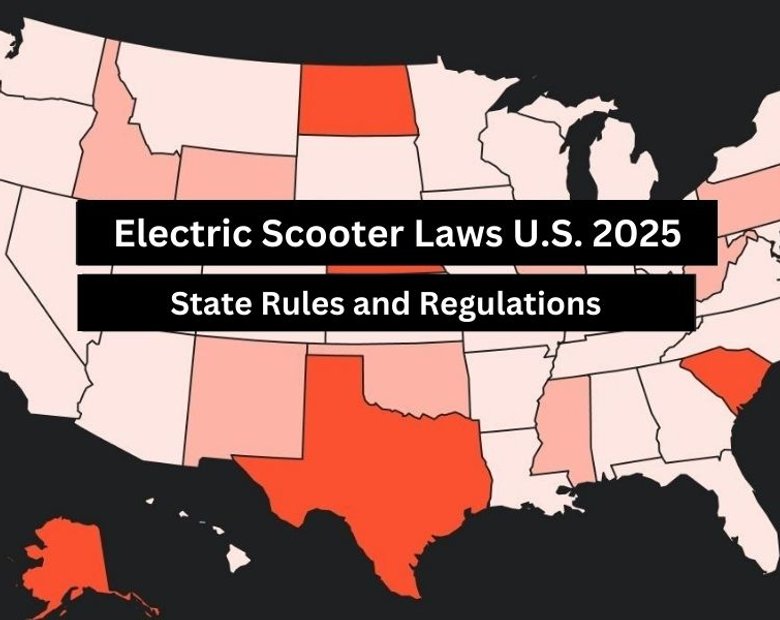
Stay current with the latest U.S. electric scooter laws in our 2025 guide. Updated annually since our first comprehensive guide, ensuring you have the most recent state and city regulations to ride responsibly”
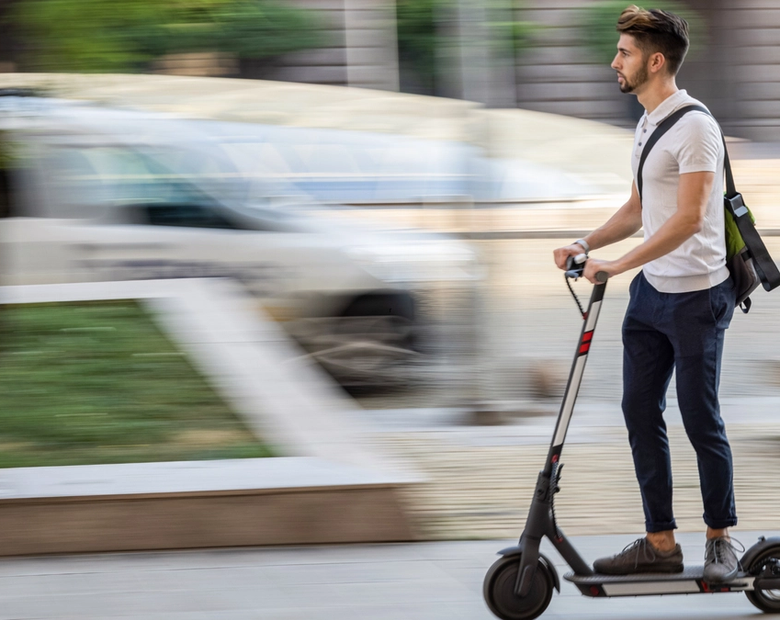
The Slack Core 920R is currently the fastest electric scooter in 2025 that you can purchase without the need for pre-order.
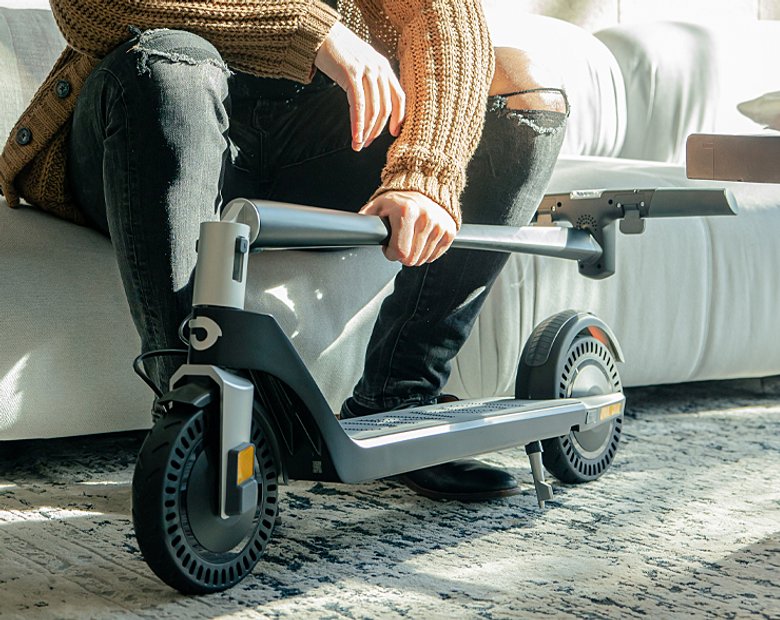
Our selection of the best electric scooters 2025 spans the fastest e-scooters to the most portable ones, the ones designed for city riding and off-road, the best scooters for rain, budget electric scooters for students, and more powerful ones for skilled riders.
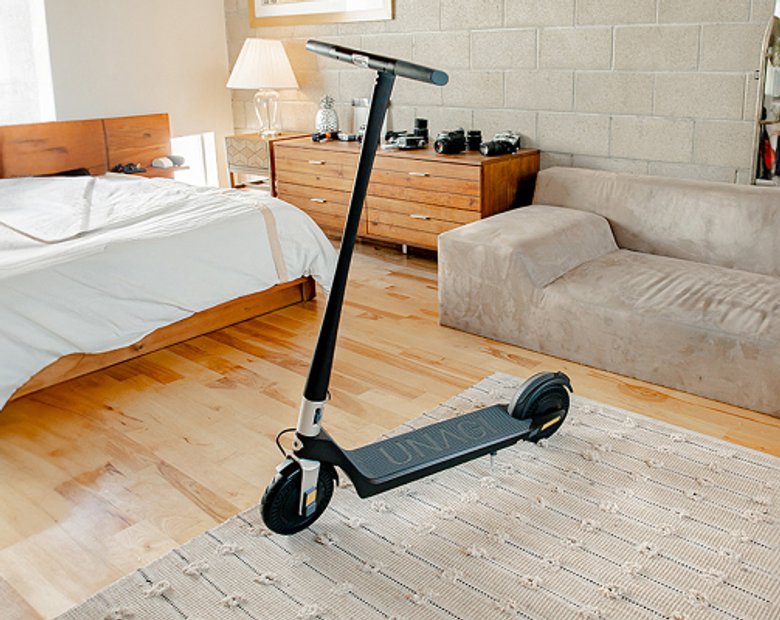
The Unagi Voyager is the best lightweight electric scooter for adults and teenagers. It is the ultraportable sequel to its predecessor, the Unagi Model One Classic.
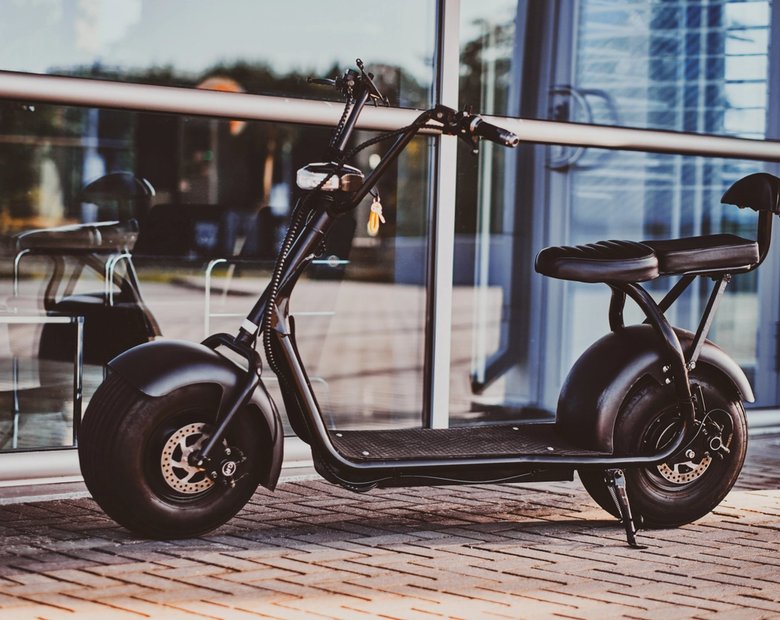
If you're wondering whether an electric scooter with a seat is right for you, this is a detailed article that would suit your need.
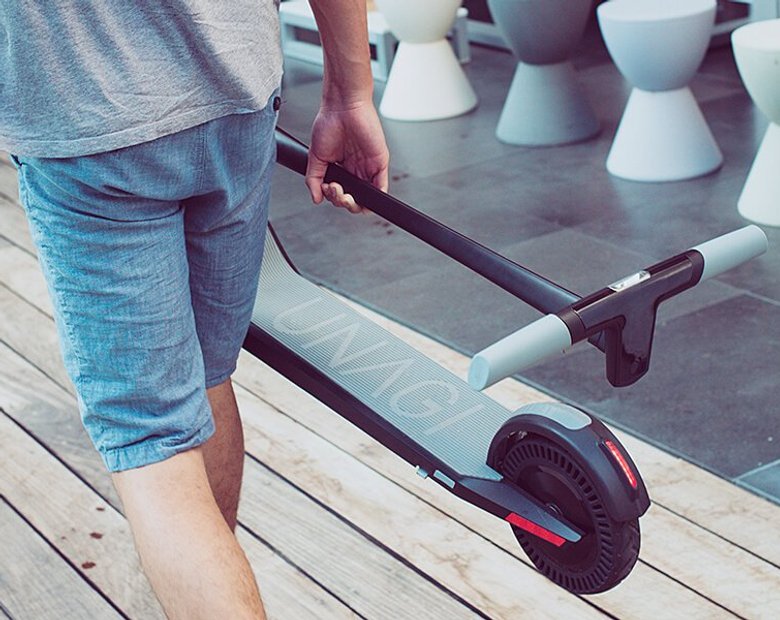
Understand which personal electric vehicle is best, the choice between an electric bike or electric scooter might already be made for you by some critical factors, including portability and storage capacity.
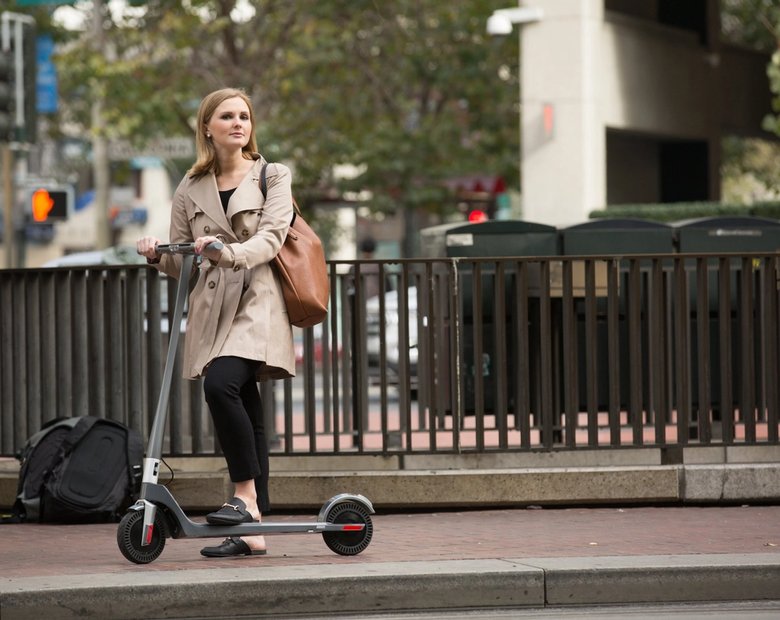
In the U.S., most states don't require a license. For those that do, they usually just ask for a regular driver's license or a learner's permit.
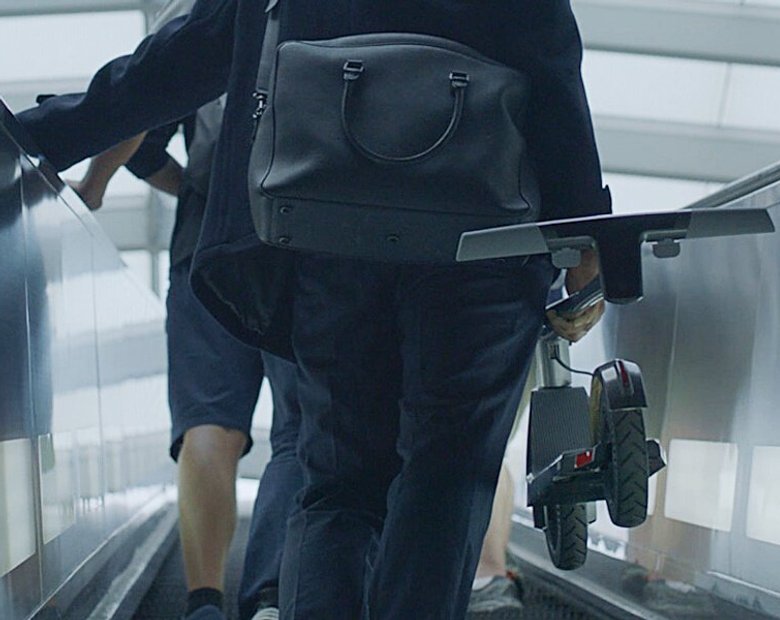
Yes, you can bring an electric scooter on a plane, but it needs to have a lithium battery smaller than 100 watt-hours, which most don't.

Manufacturers advise against riding electric scooters in the rain. The main reasons are: water can fry the electronics, make the ride dangerous, and void your warranty.

The basis and the premise of my work is that we either operate out of love or we operate out of fear...Time is currency. The coolest thing about the scooters is that it's really quick, and it goes uphill. From there, traveling more efficiently and having a good time doing it--I think that's the most important thing.

Cynthia Leu has a full plate. A tech worker by day, Cynthia spends her off time balancing the parallel lives of a powerlifter, entrepreneur, mental health advocate, and more. Riding Unagi helps this USMC veteran cut down on everyday…

https://www.youtube.com/watch?v=7m2hVBE62LY Rasheed Muhammad is sick of Los Angeles traffic. In order to preserve his sanity, Rasheed has traded his everyday driving habit for the portable and beautiful Unagi Model One. It’s an essential accessory for navigating LA streets -- and…

Rich Lee, Co-Founder of San Francisco’s SPRO Coffee Lab, wants to share his love for coffee with the world. He depends on riding Unagi to avoid the hassle of navigating the parking crunch in the booming Mission Bay neighborhood.…

